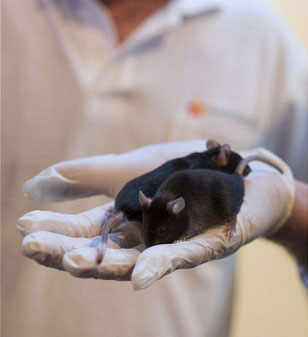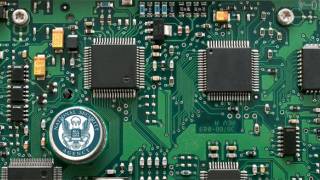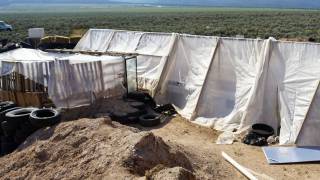Next Security Indignity? Trained "Sniffer Mice"
Source: telegraph.co.uk
An Israeli company is aiming to revolutionise the way explosives, narcotics and even money are detected at airports, docks and border crossings with the help of specially trained mice.  The system, developed by the Herzliya-based BioExplorers, is simple: a traveller stands inside a small booth and is hit by a gentle blast of air that is then sucked into an small opaque chamber, where a group of eight mice are on duty.
The system, developed by the Herzliya-based BioExplorers, is simple: a traveller stands inside a small booth and is hit by a gentle blast of air that is then sucked into an small opaque chamber, where a group of eight mice are on duty.After eight seconds, assuming the subject is all clear, a green light appears and the barrier opens.
But if the air smells of a suspicious material the mice have been trained to detect, they gather in the so-called reporting compartment, which raises an alarm.
"The idea began in 2000-2001, when there were many suicide bombings on (Israeli) buses," said BioExplorers founder and chief technology officer Eran Lumbroso at the Israel Homeland Security exhibition in Tel Aviv, where he displayed his mechanism for the first time.
"I was in the army at the time, and the idea emerged to use small animals instead of dogs in detecting suicide bombers."
After leaving the army in 2004, Lumbroso continued work on the project, running tests with different types of animals, portals and training methods.
Mice were eventually chosen because of their keen noses and diminutive size.
"They can be trained to sniff out drugs, money, even remainders of pesticides on agricultural produce," explains Lumbroso, who is a biologist.
"They have a very developed sense of smell, more than that of dogs," he said, pointing out that sniffer dogs can also be intrusive and sometimes intimidating to their subjects.
"The mice can also be easily trained, and thanks to their small size, you can use a small group of them and have multiple sensors," says Lumbroso.
The booths contain three sections, or cartridges, roughly the size of a small microwave oven, stacked one on top of the other, which are each home to eight mice.
Each group of rodents works a four-hour shift, before the flow of air is automatically diverted to the next cartridge in line.
The cartridges contain food and water which are renewed every 14 days when they are removed for cleaning and servicing.
BioExplorers says the mice enjoy much better conditions than those of standard lab mice. They are trained over two months, with each mouse able to work for an 18-month period.
In December 2010, a BioExplorers booth was placed at the entrance to a Tel Aviv shopping centre and more than a thousand people passed through it, among them 20 test subjects carrying suspect material.
"Over 1,200 people passed through. There was one false alarm, and all of the initiated targets were detected," Lumbroso said.
While mice would not be efficient in detecting metals, which do not have a powerful odour, they can be trained to react to different kinds of narcotics, and dozens of kinds of explosives emanating from roughly 15 different "families" of materials, said Lumbroso.
They can even detect the particular smell of money.
[...]
Read the full article at: telegraph.co.uk






















